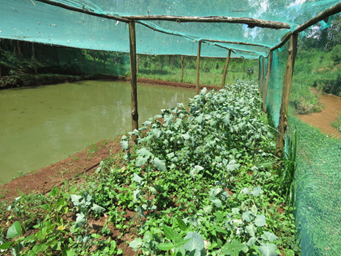
Introduction:
Kisii County, located in the fertile highlands of western Kenya, is renowned for its perennial rainfall, lush greenery, and thriving small holder agricultural base. Traditionally known as the land of matoke (bananas), Kisii’s economy is driven by smallholder farmers cultivating crops like bananas, tea, and maize while also engaging in livestock production. However, these agricultural systems are increasingly under pressure from climate variability, soil degradation, and shrinking land resources, challenges worsened by climate change.
The County has embraced aquaculture not only as a strategic pillar for livelihood diversification but also as a pathway to enhanced climate resilience and sustainable food systems. Fish farming offers an efficient way to utilize land and water resources, but high costs of commercial protein-rich feeds, aggravated by inflation and unreliable supply chains, have emerged as a major bottleneck.
To address this, Kisii County has embraced Azolla, a fast-growing aquatic fern rich in protein, as a low-cost, eco-friendly feed alternative for fish, poultry, and dairy production. Azolla’s climate-smart attributes, rapid growth, nitrogen fixation, water surface shading, and compatibility with circular farm systems, make it particularly well-suited for smallholder farmers facing both economic and environmental vulnerability. This intervention directly responds to the need for climate adaptation strategies that promote ecological balance, reduce external input dependency, and sustain livelihoods under shifting climatic conditions.
Click the story below to read more.